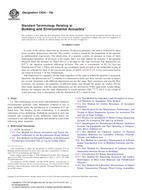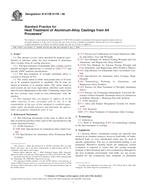1.1 This practice establishes criteria for the design of amusement rides, devices and major modifications to amusement rides and devices manufactured after the effective date of publication except as noted in 1.2.
1.2 This practice shall not apply to:
1.2.1 Patron directed amusement rides or devices (for example, go karts, bumper cars, bumper boats),
1.2.2 Artificial climbing walls,
1.2.3 Air-supported structures,
1.2.4 dry slides,
1.2.5 coin operated rides,
1.2.6 Amusement rides or devices that involve the purposeful immersion of the patron’s body partially or totally in the water and involves more than incidental patron water contact (for example, pools, water slides, lazy rivers, interactive aquatic play devices),
1.2.7 Amusement rides and devices whose design criteria are specifically addressed in another ASTM standard,
1.2.8 Portions of an amusement ride or device unaffected by a major modification,
1.2.9 Upgrades to electrical wiring, electrical motors and electrical components of amusement rides and devices provided the original design and safety criteria are maintained or enhanced, and
1.2.10 Pre-existing designs manufactured after the effective date of publication of this practice if the design is service proven or previously compliant and the manufacturer provides:
1.2.10.1 A historical summary of the amusement ride, device or major modification, and
1.2.10.2 A statement that the design is service proven or previously compliant as specified by Section 3.
1.2.11 Amusement rides and devices, and major modifications to amusement rides and devices may qualify as “previously compliant“ for five years following the date of publication of this practice. Thereafter, amusement rides and devices, and major modifications to amusement rides and devices must qualify as “service proven“ or meet the requirements of this practice.
1.3 This practice includes an annex (mandatory), which provides additional information (for example, rationale, background, interpretations, drawings, commentary, and so forth) to improve the user’s understanding and application of the criteria presented in this practice. The annex information shall be interpreted as mandatory design criteria.
1.4 This practice includes an appendix (non-mandatory), which provides additional information (for example, rationale, background, interpretations, drawings, commentary, and so forth.) to improve the user’s understanding and application of the criteria presented in this practice. The appendix information shall not be interpreted as mandatory design criteria.
1.5 This standard does not purport to address all of the safety concerns, if any, associated with its use. It is the responsibility of the user of this standard to establish appropriate safety and health practices and determine the applicability of regulatory limitations prior to use.
Product Details
- Published:
- 06/01/2011
- Number of Pages:
- 50
- File Size:
- 1 file , 1.6 MB
- Redline File Size:
- 2 files , 3 MB


